2023 Walk for Alzheimer's Spokesperson - Lisa Waddleton
Learn more about our 2023 IG Wealth Management Walk for Alzheimer's Spokesperson, Lisa Waddleton, and her mother Catherine.
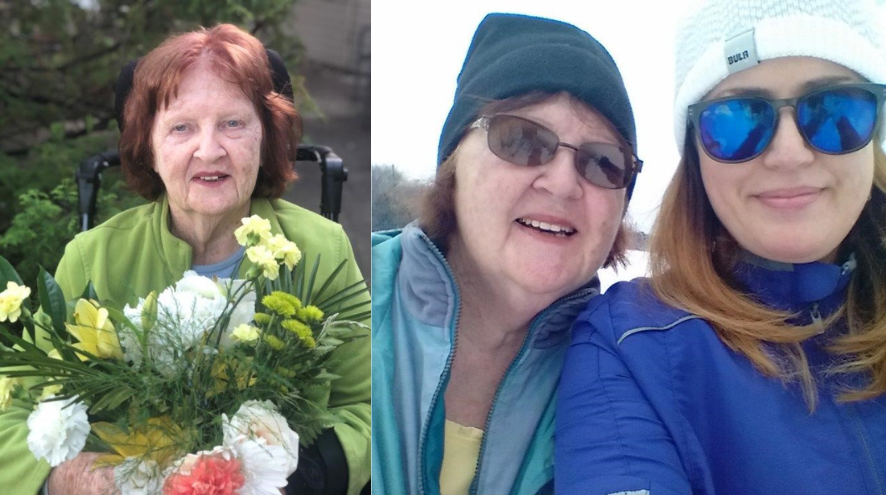
Learn more about our IG Wealth Management Walk for Alzheimer's and join us on Sunday, May 28, 2023, at Brock University.
Lisa Waddleton is our 2023 IG Wealth Management Walk for Alzheimer's Spokesperson. We sat down with Lisa to talk about her mother's experience with dementia, how it affected her family's lives, and the supports that she received at the Alzheimer Society of Niagara Region.
Tell us a bit about your mother’s life!
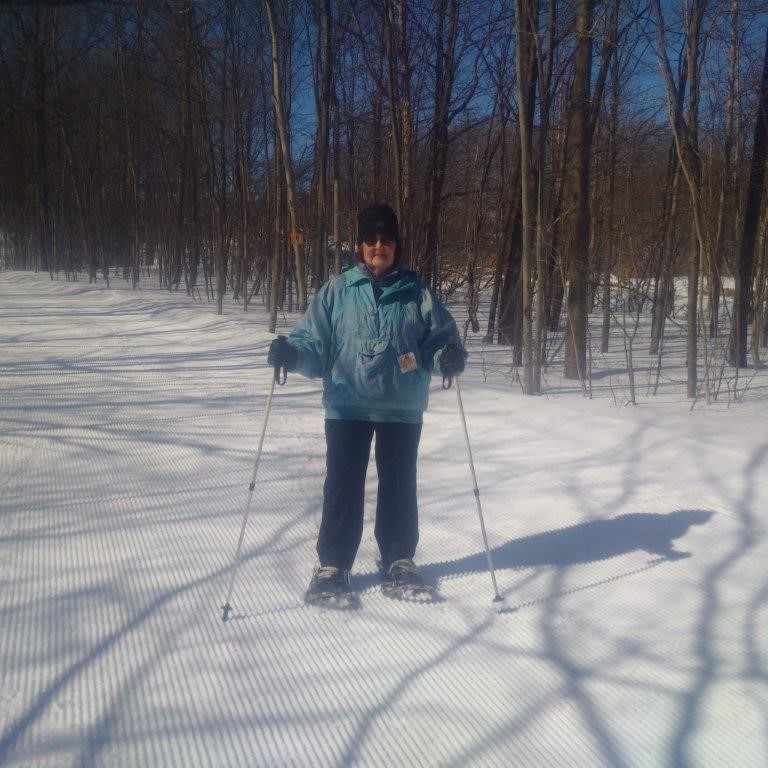
My mother Catherine, nicknamed “Dolly”, was raised on a farm in rural Nova Scotia alongside her four siblings by her mother. Although she lost her father at the young age of 10, her memories of that period of her life are still very positive. She looks back lovingly on the wonderful times they had and more specifically, the many pigs that they raised that held a special place in my mother’s heart.
My grandmother made sure that all 5 of her children received an education, which encouraged my mother to attend St. Martha’s School of Nursing in Antigonish, Nova Scotia. After completing her degree, her and her sister Monica moved to Burlington and eventually out West in search of work.
While living in Calgary, my mother fell in love with two things: downhill skiing and my father, Jim Waddleton, who was stationed in Calgary throughout his military career. When my dad asked my mom to marry him she said, “Sure, but only if you know how to ski!” which luckily, he did. The two lovebirds were married for 52 years.
My parents ended up settling in St. Catharines in the early 1970s for most of my childhood, my mother working as an OR nurse at the Hotel Dieu hospital. She was always able to balance her career as a nurse and her life as a mother with elegance. She was very active in my sister and I’s lives, driving us to skating, soccer, highland dancing, ballet, and ringette. We grew up as a skiing family (obviously!), enjoying trips to Holiday Valley, Kissing Bridge, and even a few trips to Vermont.
Later in my mother’s life, she took up golf, like all good retirees. She thrived in the sport and the social life that it brought. Throughout mom’s retirement there were many golf outings with friends, family, and my nieces.
Dolly was, and remains to this day, a social butterfly. She was known around my childhood neighbourhood for her amazing sense of humour and homemade cheesecakes. Mom was a “doer”. She made sure things got done and that everything and everybody was kept in line and on track.
When did you first notice something seemed “off” with your mother?
Hindsight is 20/20 and looking back, there were a few signs that no one picked up on. Mom was around 80-years-old when she started acting confused, but we chalked it up to our father being sick at the time and the stress of him being in and out of hospital. Mom’s daily routine was to go to the hospital and back home twice, seemingly on autopilot, until my father eventually passed in 2019.
The first red flag we noticed was at my father’s funeral. My mom became overwhelmed with all the family and friends that had gathered to celebrate my father’s life and said she didn’t know what all the fuss was about – she just wanted to go home and watch the ballgame. But death does strange things to people, and everyone reacts differently, so dementia wasn’t necessarily on our radar at the time.
Then a more serious incident came along. My sister went to visit my mother and found her in a dry bathtub, speaking incoherently stating that she had to get to work, although she had long since been retired. We believe that she had spent all night there. Luckily nothing tragic happened, which it easily could have. We sent her to the hospital for treatment after that.
What was it like for you and the family when she was diagnosed?
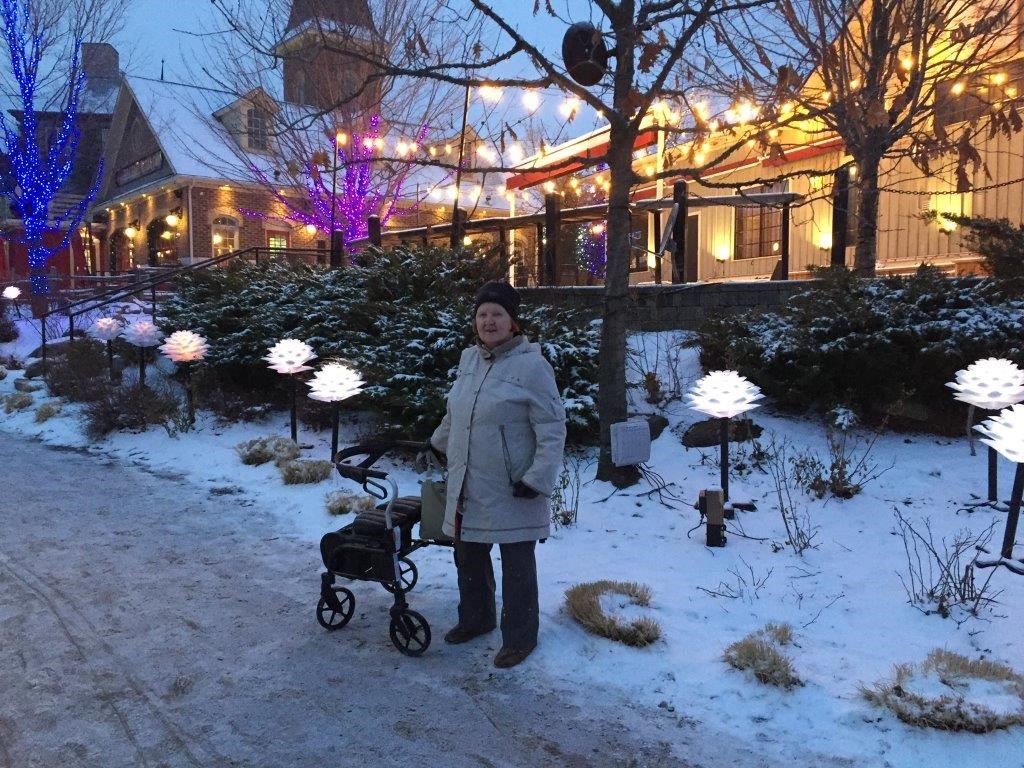
I was in utter shock. I still remember where I was when I received the phone call. There was a feeling of “what the heck do we do now?” Where will my mom live? What does a dementia diagnosis mean in the short-term? What is the long-term outlook on her quality of life? How long before she forgets who we are? What do we do with her house and the 45-years-worth of memories stored there?
Mom spent about 6 weeks in the hospital after her diagnosis, but we knew she couldn’t stay there forever. We had to find suitable accommodation for her so we placed her in a private care facility until we could connect with the LHIN/Home and Community Care and the Alzheimer Society to make longer-term decisions, including the process to enter the queue for long-term care. All of this was new to us.
What (if anything) do you want to share about yourself as a caregiver?
I was 48-years-old when my mother was diagnosed with dementia. At the time, I had a Sales career in Toronto and had been living there for 25 years. I was working a very demanding position with a lengthy daily commute to and from the office with no option to work from home. I did not particularly care for the role I was working at the time. I had also become used to driving home to St. Catharines every weekend for the last year of my father’s life to help with his care. I was running out of steam and didn’t think I had the energy to continue all of this travel to now help with my mother’s care. That’s when I finally thought, “What if I just pack it in, move back to St. Catharines, and move my mom in with me?” Is this what would be best for my mother?
How did you become connected to the Alzheimer Society?
I got connected when my mom was in the hospital in the summer of 2019. It was suggested by her care team, perhaps mom’s geriatrician or nurse, I don’t recall. But I do recall they mentioned to call right away and that the Society is like a one-stop shop for all things dementia. So of course, it was the first call I made.
How did the Alzheimer Society help with your family’s journey with dementia?
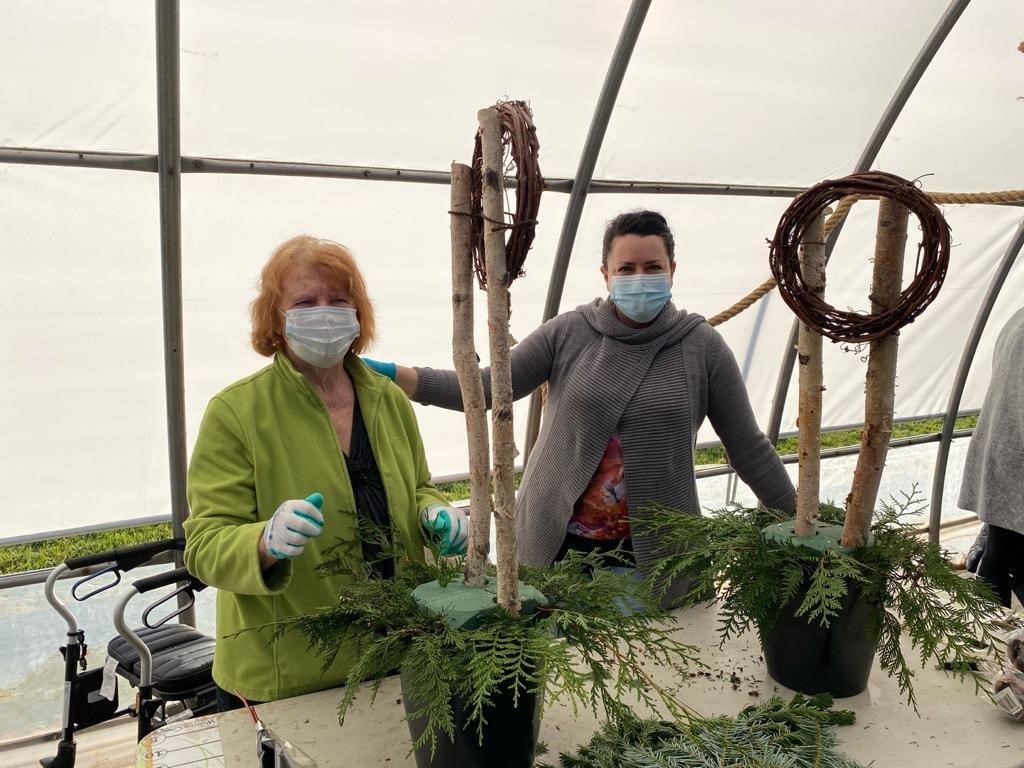
The Alzheimer Society is the reason I am sharing my story. They made all the difference in the world. My sister, myself, and my mother attended the Connections First education course and I remember thinking how knowledgeable, professional, and empathetic everyone was.
When I was first introduced to my Family Counsellor, Katie, I finally felt like I could do this. Katie and other members of the Society literally changed the way I thought about dementia – that people living with Alzheimer’s and other dementias can still live a good quality life. I was introduced to Minds in Motion, Brain Wave Cafes, and many other programs that are offered through the Society.
It was around late summer/early Fall of 2019 that I made the move from Toronto to St. Catharines. I was frightened because I knew that dementia is progressive, and it’s never going to get better or be reversed. But the philosophy of taking things one day at a time, along with some contingency planning, gave me the confidence to move forward.
I was able to negotiate a part-time remote work position for myself in St. Catharines. I bought a bungalow townhouse, and after some renovations and installation of grab bars and other safety measures, my mom and I moved into our new home in December 2019.
I got lucky. Mom’s temperament never really changed – she was still easygoing and up for anything. We enjoyed a good life, going to Minds in Motion every Wednesday, my mother attending the Adult Day Program, going for walks in the snow, cooking dinners together, and spending time with our amazing neighbours who I still think of as my “Village”.
Why did you decide to join the Walk last year? And then become our Walk spokesperson this year?
Attending the walk last year was a no-brainer. My world was changed by dementia and I was so supported by the Society and other community programs that I felt this was the least I could do.
I felt that with the help of the Alzheimer Society, my mom’s dementia was normalized. It was her and I or the highway. My friends and family supported that.
What would you like other people to know about living with dementia (as a family)?
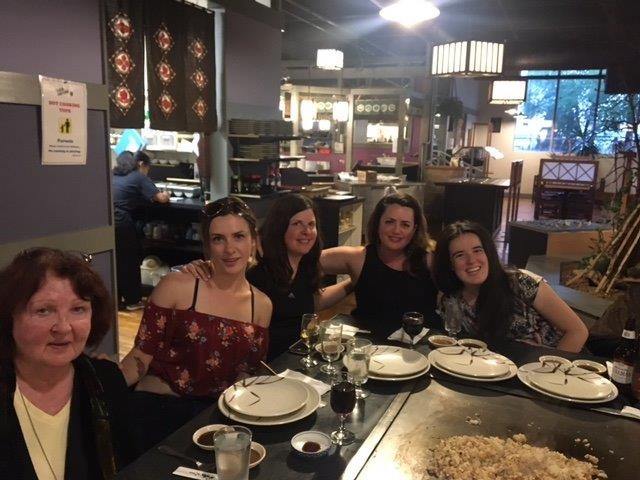
Like most issues in our society, a little knowledge and understanding can go a long way. As I was educated on dementia through the Society, I in turn was able to educate my friends and family on what to expect when it comes to dementia.
Remember, after a diagnosis of dementia, you can still enjoy many of the same activities as before, just in different ways. And, most importantly, you don’t have to do it alone. Engage family, friends, neighbours. Tell them what dementia is all about and tell them how they can help.
To quote Forrest Gump, “Life is like a box of chocolates, you never know what you're going to get”. That’s so true, everyday. Most days, if there was anything I had to get done in a day, it was done in the morning in case the day went sideways.
Use the tools provided by the Society to handle any stressful situations as they arise. They do this for a living and they know what they are talking about. I was shocked at how many people are caring for a loved one with dementia but have not contacted the Society.
Be prepared for the worst-case scenario, and be prepared with what to do or who to call if a situation gets out of hand.
Most importantly, take care of yourself.
How can people show support for others living this journey?
Surround the person living with dementia and their caregiver with love, patience, and tangible support – bring over a meal, take them for a walk, watch the loved one for an hour, etc.
If a person thinks they are on a ski hill but are really in their bedroom, go along with it!
Keep dementia normalized in our society, talk about it and ask questions. That’s the only way we will learn.
Please donate to the Alzheimer Society of Niagara, they change lives, like they did mine.
Join us at our IG Wealth Management Walk for Alzheimer's on Sunday, May 28, 2023, at Brock University. Learn more here.
